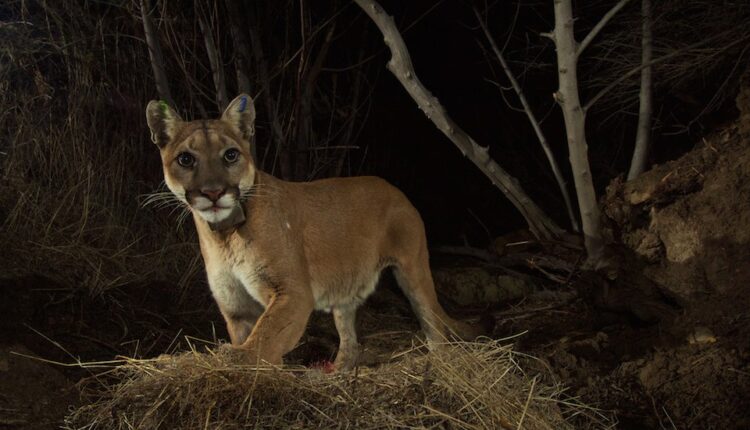WILDLIFE CORRIDOR CHALLENGES STRUCK DOWN | Court finds arguments against wildlife connectivity ordinances “without merit” – VC Reporter
PHOTO: Mountain Lion P-35 is a resident of the Santa Monica Mountains. Photo courtesy of the National Park Service.
by Kimberly Rivers
[email protected]
On Feb. 4, Hon. Mark S. Borrell of the Ventura County Superior Court issued two 44-page decisions striking down two legal challenges to the Habitat Connectivity and Wildlife Corridor zoning overlay ordinances adopted by the Ventura County Supervisors in March 2019.
“We’re hopeful that these science-based measures will remain in place and serve as a model to protect mountain lions, bears, deer and other iconic wildlife throughout the state,” said Jeff Kuyper, executive director of Los Padres ForestWatch, one of the organizations that intervened in the lawsuit in support of the ordinances, which was also instrumental in getting the overlays approved in 2019.
The lawsuits were filed against Ventura County by the California Construction and Industrial Materials Association (CalCIMA) and the Ventura County Coalition of Labor, Agriculture and Business (CoLAB). CalCIMA is a Sacramento-based trade group representing the construction and industrial material industry in California, including producers of the ingredients used in asphalt and concrete.
The wildlife corridor and habitat connectivity ordinances created a zoning overlay that proponents said were necessary to protect habitat for threatened and endangered wildlife, including the resident mountain lion populations, that need pathways to larger habitat areas to ensure genetic diversity for long-term survival. The ordinances passed by Ventura County are the first of their kind in the state.
CoLAB and CalCIMA argued that the county failed to conduct proper environmental impact reviews of the ordinances and violated other various processes and procedures.
The court found the arguments made by CoLAB and CalCIMA were “without merit” and dismissed all claims. In a statement to members on its website, CoLAB said, “While we were not successful in overturning the wildlife corridor ordinance, we are exploring other potential strategies and options to help Ventura County landowners whose property rights are impacted by this ordinance.”
The ordinances cover 163,000 acres from the Los Padres National Forest through the Simi Hills and to the Santa Monica Mountains and apply certain restrictions to properties in those areas related to development, lighting, fencing, noise and other various activities that can impact wildlife habitat.
“Communities across California should take a look at what Ventura County has done to protect wildlife hemmed in by overdevelopment,” said JP Rose, a senior attorney at the Center for Biological Diversity, one of four intervenors in the legal action, along with Defenders of Wildlife and the National Parks Conservation Association. The four intervenors were represented by the Environmental Law Clinic at the University of California, Irvine School of Law.
CoLAB is a 501c6 organization whose mission is to inform “stakeholders, experts and advocates to promote a strong local economy while preserving the local quality of life” in Ventura County by “promote[ing] sensitive and rational regulatory oversight and advocate for both businesses and local property rights.” The organization also has a 501c3 foundation aimed at funding the “educational efforts to advance the use of data and science in regulatory matters. . . and lessen the burdens of government on Ventura County Citizens.”
Court order regarding CalCIMA claims. Ventura-wildlife-ordinances-ruling-CalCIMA
Court order regarding COLAB claims. Ventura-wildlife-ordinances-ruling-CoLAB


Comments are closed.